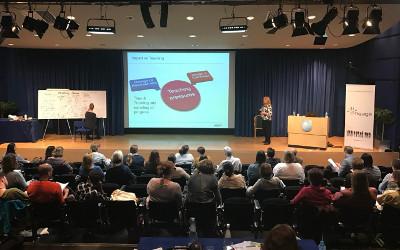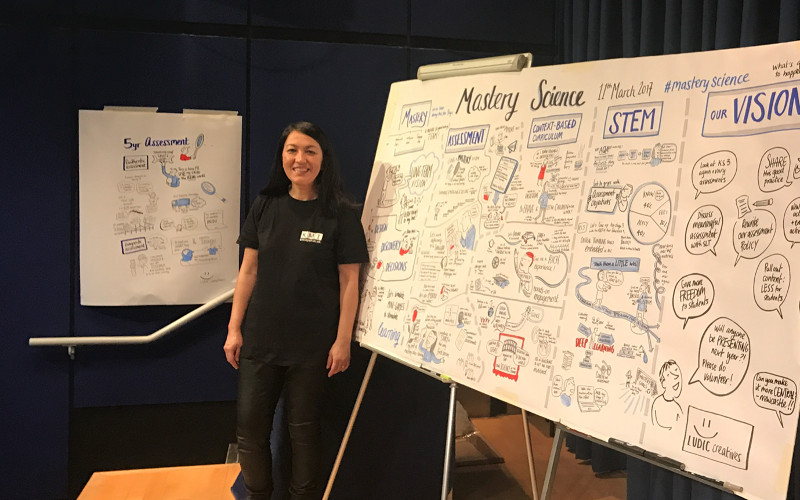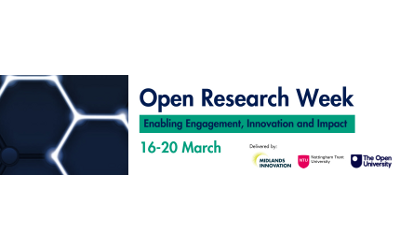Science that matters: How the CARE-KNOW-DO model transforms education

Dr Alexandra Okada’s research for CARE-KNOW-DO has been recognised as one of the top 10 publications in the field, earning a finalist spot for the prestigious “Research Worth Reading” award by the National Association for Research in Science Teaching (NARST). This award celebrates the most impactful papers published in the Journal of Research in Science Teaching over the past year, offering valuable insights for science educators. Established in 1928, NARST is a globally respected organisation affiliated with leading bodies such as NSTA, AERA, and ICASE, and plays a key role in shaping science education research and policy worldwide.
This recognition reflects the significance of Dr Okada's work in addressing a critical challenge: the disconnect between science education and students' lived realities and teaching pressures. Her research reveals that 20.6% of European students and 43.2% of Brazilian students lack the essential skills required for the emerging green economy. This skill gap not only weakens scientific literacy but also limits young people's ability to contribute to a green economy and a more sustainable and equitable future.
To confront this issue, Dr Okada proposes a systematic approach that repositions science as a relevant, empowering discipline. At the core of her work is the CARE-KNOW-DO pedagogical model - an innovative framework that enhances student engagement by integrating science learning with real-world problem-solving:
- CARE - Encouraging students to engage with meaningful societal issues, guided by scientists
- KNOW - Enabling knowledge-building through collaboration with teachers
- DO - Empowering learners to apply their knowledge by creating solutions in their communities
To measure the effectiveness of this approach, Dr Okada designed, implemented, and validated a self-assessment instrument that allows students to reflect on how science and open schooling connect to their lives and the world. Both the CARE-KNOW-DO model and the assessment instrument revitalize science education while aligning with Open Schooling practices and supporting the UN's Agenda 2030, particularly Sustainable Development Goal 4: Quality Education. By making science more accessible, measurable, relevant, and action-oriented, Dr Okada's research is cultivating a new generation of science-connected learners equipped to tackle complex sustainability challenges.
Dr Okada's research with 85 teachers and 2,082 students across five countries identified five key components for strengthening students' science connection: confidence in science, fun participatory learning, hands-on approaches, engagement in and outside school, and recognizing science's societal role.
One teacher participating in the study captured the essence of this approach, "It's very exploratory and problem-solving, and that's what students like. They like learning to think. One of them said, 'Oh, you're helping me learn how to think on my own - that's what I want. I don't want to be patronized and spoon-fed.'"
A student similarly reflected, "I liked doing projects about real problems that are useful in my life. I liked thinking and talking with others instead of being told. I liked this questionnaire, asking me questions I've never thought about deeply."
The efficacy of the CARE-KNOW-DO model was demonstrated through quantifiable outcomes. After participating in open schooling activities, science connection levels increased significantly, ranging from 57% in the UK to 80% in Brazil.
Perhaps most notably, the research challenged the traditional pattern where students' connection to science diminishes as they progress through their education. Dr Okada's work demonstrated that the CARE-KNOW-DO model can effectively re-engage older students, rekindling their scientific curiosity and motivation.

From research to real-world impact
The impact of Dr Okada's research extends far beyond academic recognition. The study led to the Open Schooling Declaration, a significant policy document signed by ministries and secretaries of education in Romania, Greece, and Brazil, and supported also by school heads in the UK and Spain.
More than 100 award-winning CARE-KNOW-DO projects have delivered environmental, economic, and social outcomes including: bioplastic from cassava skin, AI drones for forest fire protection, Amazon drought mapping, and endangered bird conservation among many others.
As we progress toward the UN's Agenda 2030 goals, Dr Okada's research provides valuable insights for universities and educational institutions. The self-assessment instrument developed through this research has already been utilized by over 51,000 students, demonstrating its scalability and potential for widespread implementation.
For curriculum designers, educational researchers, and academic policymakers, this research offers a robust framework for ensuring that science education is not only academically rigorous but also deeply relevant to students' lives and contemporary global challenges.
Reference
Okada, A. (2024). A self-reported instrument to measure and foster students' science connection to life with the CARE-KNOW-DO model and open schooling for sustainability. Journal of Research in Science Teaching, 61(10), 2362–2404.
Contact our news team
For all out of hours enquiries, please telephone +44 (0)7901 515891
Contact detailsNews & articles

Open Research Week to spotlight innovation in 2026
Open Research Week will return from 16–20 March 2026, uniting Open University researchers and partners to explore how open practices drive engagement, innovation and societal benefit.